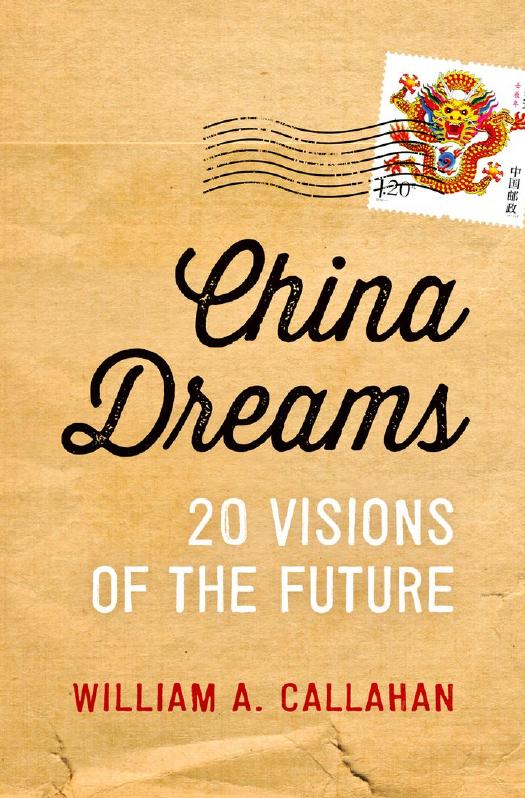China Dreams: 20 Visions of the Future by William A. Callahan

Author:William A. Callahan
Language: eng
Format: mobi, pdf
Publisher: Oxford University Press, USA
Published: 2013-03-27T16:00:00+00:00
1. My father is American, not African.
2. I am a born and bred Shanghainese person.
3. I should not have to bear my parents’ mistake, I am innocent!
4. I sternly but strongly protest some people’s racism, my skin color should not become a target of attack!
Lou finished her statement by “reserving the right to take legal action!”6
Although China’s official documents and public intellectuals see racial discrimination as a Western problem, Lou’s experience shows how race is an issue in the People’s Republic of China. Many people in China and the West argue that racism is something new in China—another lamentable legacy of Western imperialism. Yet Dutch Sinologist Frank Dikötter’s The Discourse of Race in China (1992) does an excellent job of tracing how race-like ideas have informed Chinese identity and politics for thousands of years.7
Dikötter’s research is interesting and helpful because, from the very beginning, he is clear that the “race” category itself is highly problematic. It is based on the pseudo-scientific argument that skin pigmentation defines all other aspects of one’s life: intelligence, morality, physical strength, and so on. The problem with discussing “race,” according to British sociologist Paul Gilroy, is that it is “fissile material” that not only is explosive, but also radioactive. Even those who seek to critically discuss “raciology”—the science/ideology of race—risk contamination, and they even run the risk of being denounced as “racists” themselves. Because the topic is so problematic, Gilroy advises us to stop thinking in terms of “race” in order to pursue freedom, democracy, and justice through “planetary humanism.”8
While sympathetic to Gilroy’s arguments—even more so as a “white man” writing about race discourse in China—I feel that it is necessary to consider how China’s raciology shapes broader issues in the PRC—especially since Chinese intellectuals are so deafeningly silent on this issue.
To put it another way, Lou Jing’s uncomfortable situation can tell us about more than racial politics in China. Her mix of Chinese and black parents and Liu Mingfu’s mix of internationalist and racialist arguments both show the tension between fundamentalism and cosmopolitanism that characterizes China’s dreams of the future. With its economic success, China does not just “go out” to the world; the world’s citizens are increasingly coming into China. We usually think of mixed-race in terms of Chinese/Caucasian children, but the southern metropolis of Guangzhou (Canton) hosts Asia’s largest community of Africans; more than 300,000 Africans live in a neighborhood that Chinese call “Chocolate City.” Alongside Shanghai’s countless multinational corporations, there are more than 3,000 mixed-race marriages every year. The story of foreign multinational corporations opening offices in China is a familiar part of our understanding of Beijing’s economic reform program. The growth of mixed-race marriages has been equally dramatic, especially when we realize that Deng Xiaoping had to personally approve the first such marriage after the Cultural Revolution.9 Most Chinese take their identity as self-evident: They are the descendants of 5,000 years of civilization. However, the recent influx of foreigners from the West, Asia, and Africa is challenging what it means to be Chinese.
Download
China Dreams: 20 Visions of the Future by William A. Callahan.pdf
This site does not store any files on its server. We only index and link to content provided by other sites. Please contact the content providers to delete copyright contents if any and email us, we'll remove relevant links or contents immediately.
The Secret History by Donna Tartt(19052)
The Social Justice Warrior Handbook by Lisa De Pasquale(12187)
Thirteen Reasons Why by Jay Asher(8893)
This Is How You Lose Her by Junot Diaz(6877)
Weapons of Math Destruction by Cathy O'Neil(6264)
Zero to One by Peter Thiel(5786)
Beartown by Fredrik Backman(5737)
The Myth of the Strong Leader by Archie Brown(5499)
The Fire Next Time by James Baldwin(5431)
How Democracies Die by Steven Levitsky & Daniel Ziblatt(5215)
Promise Me, Dad by Joe Biden(5141)
Stone's Rules by Roger Stone(5081)
A Higher Loyalty: Truth, Lies, and Leadership by James Comey(4954)
100 Deadly Skills by Clint Emerson(4921)
Rise and Kill First by Ronen Bergman(4779)
Secrecy World by Jake Bernstein(4741)
The David Icke Guide to the Global Conspiracy (and how to end it) by David Icke(4703)
The Farm by Tom Rob Smith(4502)
The Doomsday Machine by Daniel Ellsberg(4484)
